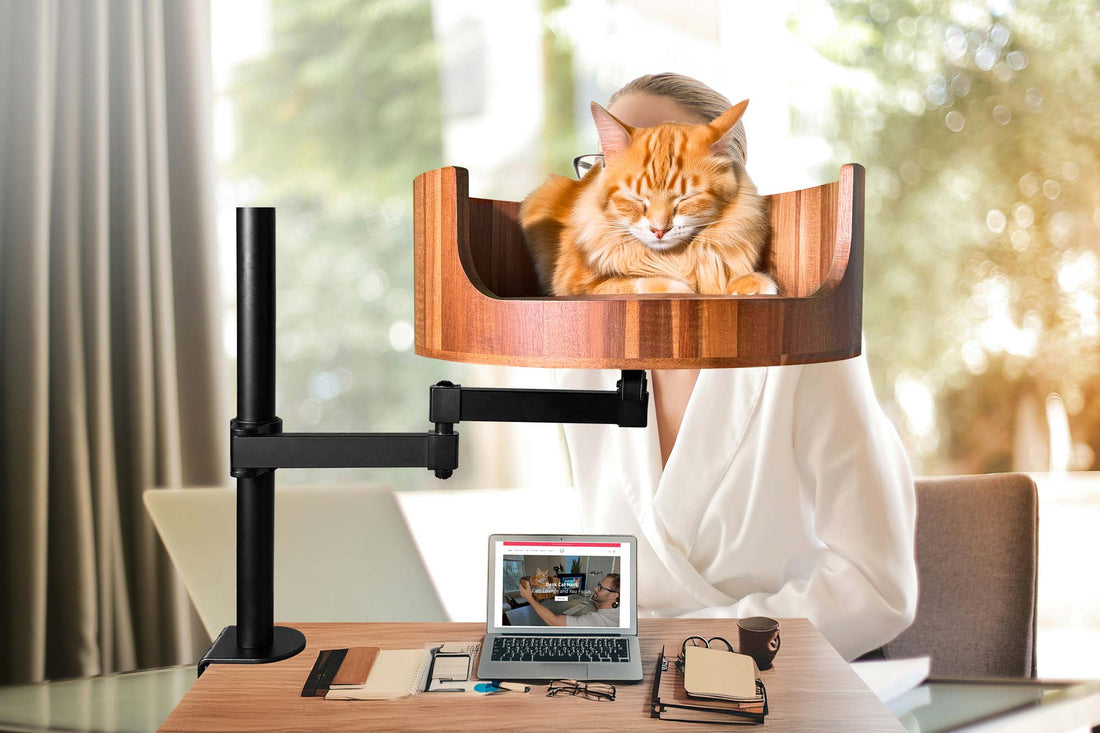
Why is my cat slobbering? Understanding the Causes
Share
If you've ever noticed your cat leaving puddles of drool around the house or on your lap, you may be wondering why your furry friend is slobbering so much. There can be several reasons for excessive drooling in cats, ranging from benign causes like excitement or stress to more serious health issues. In this article, we will explore the various reasons why your cat may be slobbering, helping you understand and address the underlying cause behind this behavior.
From dental problems to gastrointestinal issues, slobbering can be a symptom of a wide range of conditions in cats. We will delve into common causes of excess drooling in cats, such as dental disease, oral ulcers, and foreign objects stuck in the mouth. Additionally, we will discuss how stress and anxiety can also lead to increased drooling in felines. By understanding the potential reasons behind your cat's slobbering, you can better care for your pet and ensure their health and well-being.
1. Excessive drooling in cats can be caused by various factors such as dental issues, oral infections, or even underlying health conditions.
2. Stress and anxiety can also contribute to increased drooling in cats, so it is important to monitor their behavior and environment.
3. Regular dental check-ups and proper oral hygiene can help prevent slobbering in cats and maintain their overall health.
4. If excessive drooling persists, it is recommended to consult with a veterinarian to rule out any serious health concerns.
5. Understanding the causes of slobbering in cats can help pet owners better care for their feline companions and address any health issues promptly.
What is Slobbering in Cats?
Slobbering in cats, also known as hypersalivation, is the excessive production of saliva that results in drooling. While occasional slobbering may be normal, persistent or sudden onset of slobbering can indicate an underlying health issue that needs attention.
Common Causes of Slobbering in Cats
There are several potential causes for a cat to start slobbering excessively. Dental issues, such as gum disease or tooth decay, can lead to slobbering as the cat tries to alleviate pain or discomfort. Infections in the mouth or throat, such as stomatitis or tonsillitis, can also trigger increased saliva production. Additionally, ingestion of toxins, foreign objects, or certain medications can result in slobbering as the body tries to expel the irritants.
Medical Conditions Associated with Slobbering
Various medical conditions can manifest as slobbering in cats. Respiratory infections, such as rhinitis or sinusitis, can trigger nasal discharge that mixes with saliva, causing the cat to drool. Neurological disorders, such as seizures or nerve damage, can affect the cat's ability to swallow properly, leading to slobbering. Systemic diseases, like kidney failure or liver disease, can also result in slobbering due to increased toxins in the body affecting saliva production.
When to Seek Veterinary Assistance
If your cat's slobbering is persistent, excessive, or accompanied by other symptoms such as lethargy, loss of appetite, or difficulty breathing, it is essential to seek veterinary assistance promptly. A thorough examination by a veterinarian can help identify the underlying cause of slobbering and determine the appropriate treatment to alleviate your cat's symptoms and improve their overall health.
Frequently Asked Questions
Why is my cat slobbering?
There are several potential reasons why your cat may be slobbering. It could be due to dental issues, such as gum disease or a broken tooth, or it could be a sign of an underlying health problem. It's important to consult with your veterinarian to determine the cause of your cat's slobbering.
Can the Desk Cat Nest help with my cat's slobbering?
The Desk Cat Nest is designed to provide a comfortable and secure sleeping space for your cat. While it may not directly address the issue of slobbering, providing your cat with a cozy and stress-free environment can help improve their overall well-being, which may in turn reduce slobbering caused by anxiety or discomfort.
Is the Desk Cat Nest easy to clean?
Yes, the Desk Cat Nest is made with removable and washable materials, making it easy to keep clean and maintain. Simply remove the cushion and wash it according to the care instructions provided to keep your cat's sleeping space fresh and hygienic.
Will my cat enjoy the Desk Cat Nest?
While every cat is unique and may have their own preferences, the Desk Cat Nest is designed to mimic the cozy and secure feeling of a nest, which many cats find comforting. The soft cushion and enclosed design create a cozy environment that may appeal to your cat's natural instincts to seek out safe and warm spaces for sleeping and relaxing.
In conclusion, the Desk Cat Bed is a valuable choice for addressing why your cat may be slobbering. By providing a comfortable and secure space for your cat to rest and sleep, the Desk Cat Bed can help reduce stress and anxiety, which are common causes of excessive drooling in cats. Additionally, the raised design of the bed can help improve your cat's overall health by promoting better posture and circulation. Invest in a Desk Cat Bed today to help alleviate your cat's slobbering and provide them with a cozy spot to relax and unwind.



















































